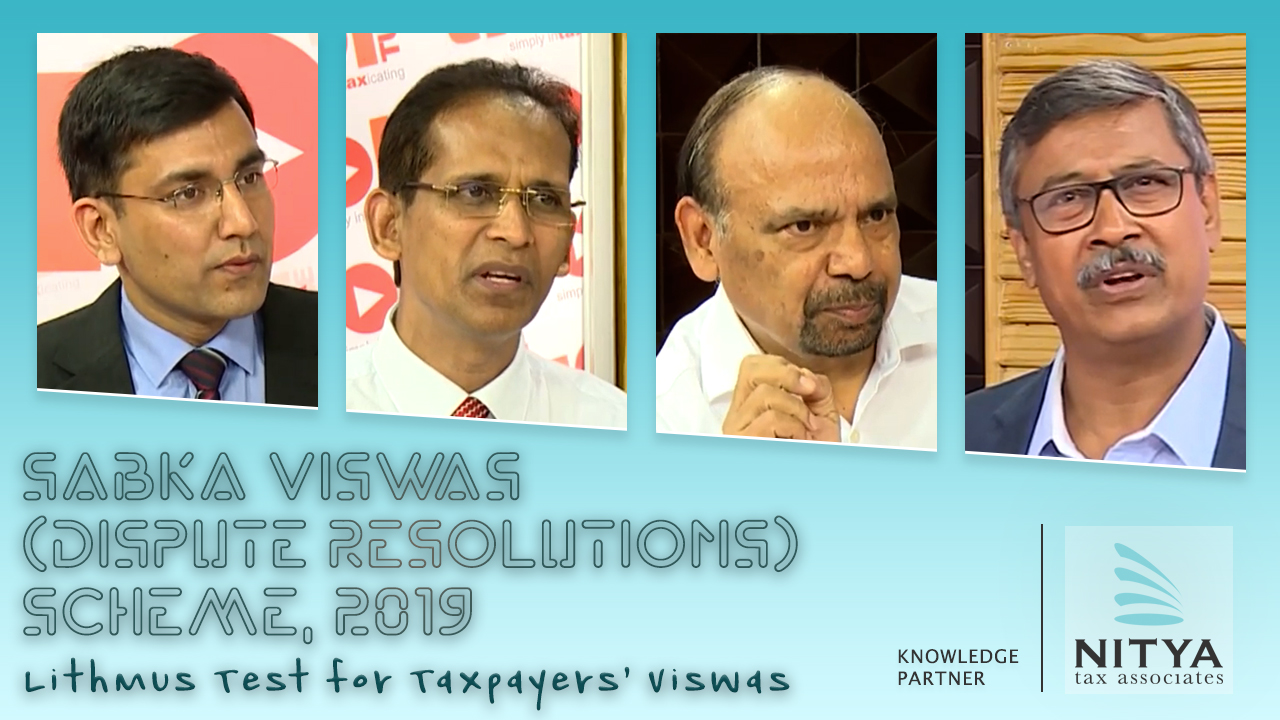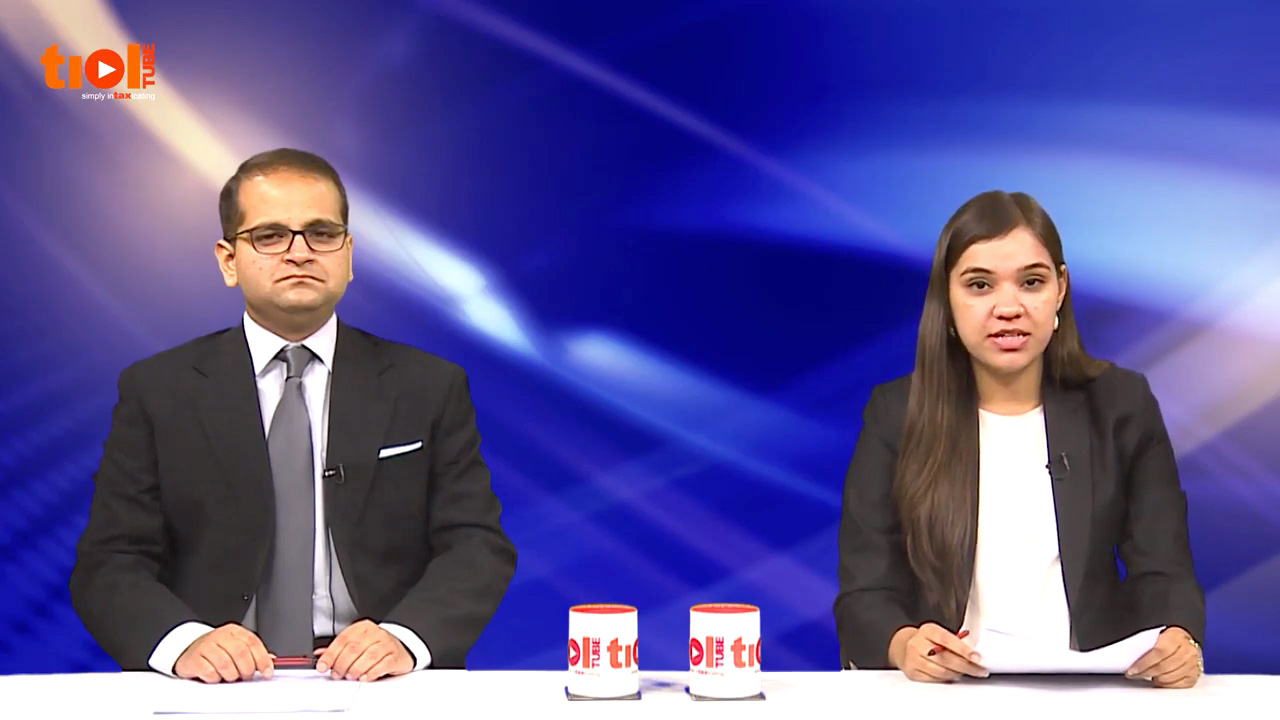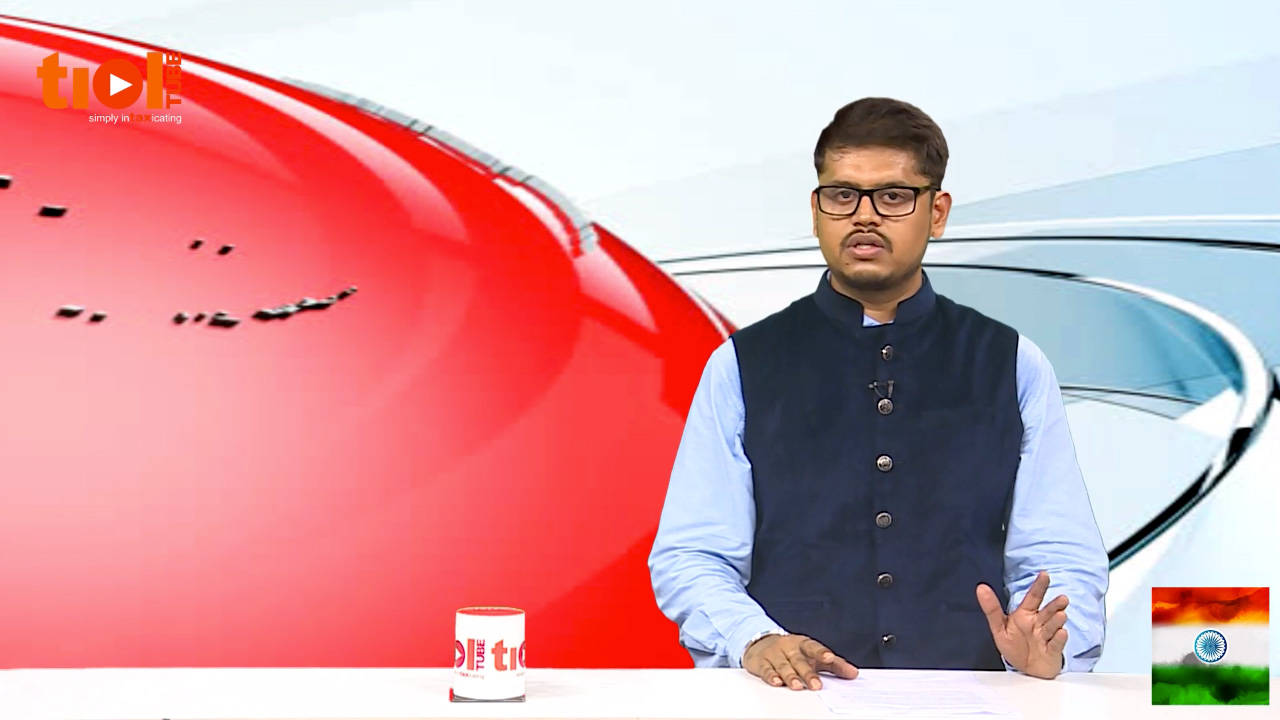|
SERVICE TAX
2019-TIOL-2502-CESTAT-HYD
SK Kaparti And Company Vs CCT
ST - Assessee, Chartered Accountant firm was issued a SCN demanding duty on chartered accountant services invoking extended period of limitation along with interest and also proposing to impose penalties- The events have moved further after the assessee filed this appeal and the impugned order was followed by a Denovo adjudication order by lower authority - Assessee submits that they propose to appeal against the Denovo adjudication order before the first appellate authority but have not done so yet - They still have time to file an appeal - In this factual matrix, there is no reason to set aside the impugned order of the first appellate authority - This Bench cannot take a decision on whether the first appellate authority is correct in upholding the penalty or otherwise, without deciding on the merits of the case itself - Since the entire demand has now been confirmed in the Denovo adjudication order and is likely to be appealed before the first appellate authority, the matter can be decided at his level - If the appellant is not satisfied with the order which may be passed by the first appellate authority, they can appeal and raise whatever issue they consider necessary in such an appeal - The present appeal seeking modification of the impugned order is infructuous at this stage: CESTAT
- Appeal dismissed: DELHI CESTAT
2019-TIOL-2501-CESTAT-DEL
Suprintendent Of Police Vs CCE & ST
ST - The appeal has originated out of Order of Commissioner (A) - Vide the said Order, a SCN has been adjudicated which was served upon assessee i.e. the Superintendent of Police to show cause as to why the service tax for providing services under Security Agency Services may not be recovered alongwith the interest at the prevailing rates and the penalties prescribed under Section 76, 75 and 78 of the Finance Act be not imposed - The demand as proposed vide said SCN was confirmed initially by O-I-O and was subsequently confirmed vide the impugned order under challenge - As per Section 35 of the Rajasthan Police Act, "No police office shall engage in an employment or office whatsoever, other than his duties under this Act, unless expressly permitted to do so in writing by the State Government" - Thus, police officer is by law bound to maintain law and order and it cannot be considered as an agency engaged in business of providing security - Also for the reason that amount so collected by assessee was deposited to Government Treasury, it was not the income in its hand - Commissioner (A) has failed to appreciate the difference between a person doing a business and a person discharging a sovereign function under a statutory mandate - The Order is therefore set aside: CESTAT
- Appeal allowed: DELHI CESTAT
CENTRAL EXCISE
2019-TIOL-2041-HC-MAD-CX
Dongsung Automotive Pvt Ltd Vs Superintendent Of Central Taxes
CX - Petitioner was visited with a communication dated 14.03.2019 referring to Section 50 of CGST Act and directing payment of interest at the rate of 18% per annum on delayed payment of tax for the period from July 2017 to November 2018 - To this, the writ petitioner responded vide letter dated 29.03.2019 inter alia contending that the writ petitioner could not pay the cash component within the due date owing to one of their customers delaying payment on a regular basis - Besides, it was contended that ITC credit for every month is nearly 73% and writ petitioner has adjusted the same against total GST payable and worked out the interest on the balance cash component - writ petitioner submitted that the original payment was Rs.1,70,71,048.31 and after writ petitioner's letter dated 29.03.2019, the Department had reduced it to Rs.1,00,91,755 vide a communication to writ petitioner dated 22.05.2019, but no reasons whatsoever have been adduced therein as to how the sum originally demanded has been brought down - question that emerges, therefore, is 'whether the writ petitioner is liable to pay interest for ITC also?'.
Held: Both sides submit that they are unable to say with certainty as to whether the decision in Megha Engineering & Infrastructure Ltd 2019-TIOL-893-HC-TELANGANA-GST rendered by a Division Bench of High Court of Telangana has been carried to the Supreme Court - In the aforesaid circumstances, considering the factual matrix of this case, this Court deems it appropriate to leave open the question as to whether Megha Engineering & Infrastructure Ltd case would apply to instant case - writ petitioner submits that if the Department is called upon to send a communication explaining the reduction in the sum as well as the issue as to whether interest is payable on ITC, writ petitioner will avail a statutory appellate remedy against such an order in terms of s.107 of the CGST Act, 2017 - On payment of amount of the admitted liability of Rs.229,014,673/- on or before 20.06.2019, the impugned communication dated 23.05.2019 bearing reference C.No.IV/16/30/2019-Tech-III from the second respondent to the third respondent bank will stand set aside - On payment of aforesaid amount on or before 20.06.2019 by the writ petitioner, impugned communication from the second respondent to third respondent bank inter-alia under Section 79 of CGST Act will stand set aside and the second respondent shall consider all the points raised in writ petitioner's reply dated 29.03.2019, more particularly the annexed working sheet, pass an order in a manner known to law and communicate the same to the writ petitioner under due acknowledgement within one week therefrom - If the decision taken by the second respondent is in favour of the writ petitioner, it is the end of the matter and if that is not so, writ petitioner shall avail alternate remedy of preferring a statutory appeal to the appellate Authority under Section 107 of CGST Act - Writ petition is disposed of : High Court [para 14 to 16]
- Petition disposed of: MADRAS HIGH COURT
2019-TIOL-2500-CESTAT-ALL Teekay Flavour And Fragrance Industries Vs CCE & ST
CX - Compounded levy Scheme - Chewing Tobacco and Unmanufactured Tobacco Packing Machines (Capacity Determination and Collection of Duty) Rules, 2010 - The assessee is engaged in manufacture of Kamyab brand Pan Masala and Kamyab brand Zarda - At the request of assessee, the machines installed in their factory were sealed for period 11.09.2013 to 30.09.2013 for a period of twenty days - Accordingly in terms of the provisions of Rule 10 of said Rules, they applied for abatement of duty of Rs.8.00 Lakhs - The assessee's claim of abatement stands denied only on the ground that they did not clear the earlier manufactured goods within a period of two days - Otherwise there is no dispute about the fact that the sealing done by the officers in terms of said Capacity Determination Rules continued for the period in question and no manufacturing activity was undertaken by them during the period of sealing - The assessee had taken a stand that the earlier manufactured goods could not be cleared within a period of two days as they were not having any buyers for the same - In the absence of any dispute that during the period of abatement, the assessee's factory admittedly remained closed thus earning the abatement in terms of the said Rules and mere clearance of the earlier manufactured goods beyond the period of two days, by itself cannot be adopted for denial of the abatement - The lower authorities have relied upon various decisions laying down that exemption Notifications have to be strictly construed, but the status of various conditions of Notifications is required to be adjudged and interpreted in a justifiable manner - The condition of clearance of pre-manufactured goods within a period of two days of the closure of factory is meant for avoiding any misuse of facility given to the manufacturers as the goods in question are prone to evasion - However, when it is otherwise established and is not disputed by Revenue that the substantive condition of the Notification which is the sealing of machines and consequent closure of the factory stand satisfied, the clearance within two days being only a technical condition, has to be interpreted in a manner leading to justice to the assessee - The purpose for which such a condition was added by the legislature has to be kept in mind and when that purpose is not defeated, an interpretation conducive to justice has to be given - No reasons found to deny the abatement to the assessee - Accordingly, impugned orders are set aside: CESTAT
- Appeal allowed: ALLAHABAD CESTAT
2019-TIOL-2499-CESTAT-MAD
Jansons Textile Processors Vs CGST & CE
CX - Appellants, engaged in the manufacture of woven fabrics, terry toweling and knitted fabrics, applied for permission to avail the special procedure under section 3A of the CEA for payment of duty under Compounded Levy Scheme [CLS] on the processed textile fabrics during the period from 1.5.2001 to 31.3.2002 - pursuant to investigations, a number of apparent discrepancies emerged - the Commissioner, vide impugned order, denied the benefit of special procedure for payment of duty under CLS in terms of rule 96ZNA of the Central Excise Rules, 1944 [CER] under notification no.32/2001-CE dated 28.6.2001 - application (Form ASP-1) dated 16.5.2001 filed by the appellant for availing permission to avail this special procedure, was rejected, amount of Rs.2.17 crore confirmed as the differential duty on the processed fabrics cleared and penalties imposed - appeal to CESTAT.
HELD: Appellant has failed to satisfy the first condition of rule 96ZNB of the CER, inasmuch as, they have failed in clearing the very first hurdle of initial investment over and above the threshold limit prescribed thereunder - thus, the mere application filed under rule 96ZNA per se will not confer any benefit, much less of the kind sought for by the appellant herein - SCN has categorized the clearances into three types - type 1 concerns valuation of fabrics cleared on job work basis to M/s. Jansons Industries Ltd. who, in turn, use the processed fabrics to manufacture dhotis, etc. - merit found in the contention of the appellants that in such cases, the method of valuation laid down in Ujagar Prints Ltd. - 2002-TIOL-03-SC-CX-CB and reiterated in Pawan Biscuits Co. (Pvt.) Ltd. - 2002-TIOL-04-SC-CX will necessarily have to be followed, in which case, the value to be adopted will be restricted to the material cost of job work charges - there cannot then be any question of adding the profit of the principals - it is also found that the appellants have correctly relied upon Board Circular No. 619/10/2002-CX dated 19.2.2002 - the second type of clearance on which duty has been demanded relates to the processed goods sent via appellant to M/s. Jansons Exports - there is no dispute that such processed goods were sent on payment of compounded duty and, thereafter, exported - the Bench is, therefore, in agreement with the submission of the appellant that for this reason, there cannot be any demand of differential duty - the third type of clearance alluded to in the SCN concerns goods processed and cleared to independent customers on job work basis - the appellant has argued that the differential duty is calculated here also by deducting the compounded levy from the value shown in the invoice - it is also argued that the valuation method imposed by the Department is without any legal basis and that the valuation should be under the ratio laid down by the Apex Court in the case of Ujagar Prints Ltd. - in the grounds of appeal, the appellants have contended that no findings have been given by the adjudicating authority with regard to the detailed submissions made on this aspect by the appellant in their reply to the Notice - it is also brought out that in the reply to the SCN that they had submitted a revised quantification of demand, as per which the duty payable is only Rs.68.65 lakhs - in the circumstances, there is a definite case for re-consideration of the quantum of demand in this case - the matter is, therefore, remanded to the adjudicating authority for the limited purpose of taking into account the submissions made by the appellants as also the revised quantification submitted by them: CESTAT
Penalty: It is found that the proceedings have been initiated and the disputed demands confirmed only due to differences in interpretation of the provisions of the compounded levy scheme provided in rule 96ZNA and 96ZNB of the erstwhile CER and notification no.32/2001-CE(NT) dated 30.4.2001 - even as of now, the appellants are still disputing the manner and method of quantification of duty liability and have argued that the demand should only be to the extent of Rs.68.65 lakhs against the confirmed demand of Rs.2.17 crore - merit also found in the argument of the appellants that the only basis for alleging suppression is that actual value of plant and machinery was not disclosed in their application dated 16.5.2001 and that the Department identified 'other fixed assets' from the appellant's balance sheet as on 31.3.2001 - the appellants have averred that the very same balance sheet was submitted by them along with the application, as recorded in paragraph 7.05 of the Order-in-Original - in the circumstances, no suppression can be assailed against the appellant - in consequence, the penalty of Rs.2.17 crore under section 11AC of the CEA and rule 173Q of the erstwhile CER read with section 38A of the CEA cannot be sustained and is, therefore, set aside - for the above reasons, Appeal No. E/552/2010 (M/s. Jansons Textile Processors) is partly remanded for the limited purpose of re-quantification of net duty liability in the light of the observations and directions hereinabove - the imposition of penalty of Rs.2.17 crore under section 11AC is set aside - with respect to the penalties imposed on Shri T.S.Natarajan, Shri T.N.Kalaimani and Shri J.Srinivasa Raghavan, while the findings and decisions in the impugned order span around 13 to 14 pages, there is no discussion with regard to the allegations made against these three persons that they have actively connived or conspired to facilitate the "proprietary interest" aspect alleged by the Department - the only discussion remains in paragraph 21.01 wherein the only finding against Shri T.S.Natarajan and Shri T.N.Kalaimani are that "being partners of the above firm, cannot disown their responsibility in giving false declaration to the Department" - it is also alleged that the partners are at the helm of affairs of management of the firm and are directly responsible for the omission and commission in this case, leading to loss of revenue to Government - this is as bald and presumptive as a conclusion can be - the finding against Shri J.Srinivasa Raghavan is that he was the authorized signatory and "has failed to furnish the details regarding the value of plant and machinery as conforming to the Accounting Standards 10 issued by the Institute of Chartered Accountants of India as promised by him" - it is not at all just or fair to implicate the authorized signatory and hold him responsible only because he professed total ignorance of the goings-on with respect to investment in plant and machinery - in the circumstances, no acceptable grounds or reasons have been discussed, analysed or concluded by the adjudicating authority towards imposing the penalties on these three persons, that too of such huge quantum viz., Rs.25 lakhs on Shri T.S.Natarajan and Shri T.N.Kalaimani and Rs.2 lakhs on Shri J.Srinivasa Raghavan - no justification found for these penalties - this being so, that part of the Order which imposes these penalties cannot be sustained and will require to be set aside, and is set aside - Appeal Nos. E/553/2010 (Shri J.Srinivasa Raghavan), E/554/2010 (Shri T.S.Natarajan) and E/555/2010 (Shri T.N.Kalaimani) are, therefore, allowed in toto: CESTAT
Summary: I n respect of Appeal No. E/552/2010 : (a) the appeal is partly remanded for the limited purpose of re-quantification of the net duty liability in the light of the observations and directions; (b) the imposition of penalty of Rs.2.17 crore under section 11AC of the CEA read with rule 173Q of the erstwhile CER read with section 38A of the CEA is set aside - the appeal on this score is allowed - i n respect of Appeal Nos. E/553/2010, E/554/2010 and E/555/2010 : (a) the penalties imposed under rule 209A of the CER read with section 38A of the CEA on Shri T.S.Natarajan, Shri T.N.Kalaimani and Shri J. Srinivasa Raghavan are set aside - the appeals against the penalties imposed on these persons are allowed - the appeals are disposed of on above terms : CESTAT [para 11, 12, 13, 14.1.1, 14.1.2, 14.2, 14.3.1, 14.3.2, 15, 16.1, 16.2, 17, 18, 21.1, 21.2, 21.3, 22, 23, 24]
- Appeals disposed of: CHENNAI CESTAT
2019-TIOL-2498-CESTAT-AHM
Gemini Engi Fab Ltd Vs CCE & ST
CX - The assessee is registered with Service Tax for providing services of "Repair and Maintenance Services" and "Erection Commissioning and Installation Services" - They are manufacturing dutiable goods - Appeal no. E/70/2011 seeks to deny CENVAT Credit whereas appeal no. ST/526/2011 seeks to demand duty against utilization of said CENVAT Credit - In so far as appeal no. ST/526/2011 is concerned, the demand has been confirmed solely on the ground that the assessee should not have utilized the credit till the dispute regarding availability of credit is finalized - Irrespective of the facts whether the credit is allowed or denied, the second demand amounts to double jeopardy, hence, is not sustainable and is therefore, set aside - Now coming to appeal E/70/2011, it is seen that Revenue is seeking to deny credit of Excise duty paid during processing of certain goods by job work items at the hands of job workers providing services to the assessee - There is no dispute that the said material is used in provision of services on which the assessee is paying Service Tax - The SCN seeks to deny credit on the ground that the activity undertaken by assessee is not manufacturing but repair of goods and thus, no credit on input can be allowed - It ignores the fact that the assessee is also a service provider and said goods are used in provision of said services in which the assessee is discharging Service Tax liability - No merit found in denial of CENVAT credit to the assessee: CESTAT
- Appeal allowed: AHMEDABAD CESTAT
CUSTOMS
2019-TIOL-2497-CESTAT-AHM
CC Vs Artex Textile Pvt Ltd
Cus - The assessee had imported Polyester Knitted Fabrics (mixed lot) declaring the value as Rs. 121/- per Kg. - The said value was rejected on the strength of contemporary imports of the said goods which was around Rs. 148/- per Kg. and the value was revised to Rs. 148/- per Kg as per NDDB data - The O-I-O was passed on the basis of assertion that they were on contemporaneous imports of Rs. 148 per Kg. - The O-I-O shows that there is no mention of name of importer or number of Bills of Entry on the basis of which said observation has been made - It is seen that the Apex Court in the case of Sanjivani Non-Ferrous Trading Pvt. Limited 2018-TIOL-447-SC-CUS affirmed the decision of the Tribunal - Thus, without any specific evidence of contemporaneous imports the assertion of contemporaneous price is baseless - The O-I-O does not disclose the documents, the data, quantity, price etc. of the contemporaneous imports - In these circumstances, following the decision of Apex Court, O-I-O was without any evidence - The Commissioner (A) has rightly set-aside the demand: CESTAT
- Appeal dismissed: AHMEDABAD CESTAT
|
|





 By K Srinivasan
By K Srinivasan 

